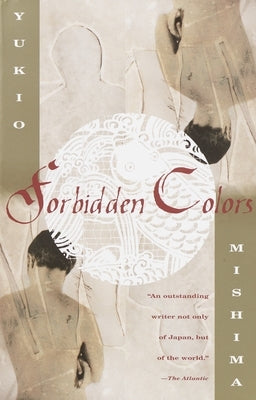Description
An aging, embittered novelist sets out to avenge himself on the women who have betrayed him. He finds the perfect instrument in Yuichi, a young man whose beauty makes him irresistible to women but who is just discovering his attraction to other men. As Yuichi's mentor presses him into a loveless marriage and a series of equally loveless philanderings, his protégé enters the gay underworld of postwar Japan where Yuichi is defenseless as any of the women he preys upon.
Author: Yukio Mishima
Publisher: Vintage
Published: 02/22/1999
Pages: 416
Binding Type: Paperback
Weight: 1.00lbs
Size: 8.00h x 5.30w x 0.90d
ISBN13: 9780375705168
ISBN10: 0375705163
BISAC Categories:
- Fiction | LGBTQ+ | Gay
- Fiction | Historical | General
- Fiction | Literary
About the Author
YUKIO MISHIMA was born in Tokyo in 1925. He graduated from Tokyo Imperial University's School of Jurisprudence in 1947. His first published book, The Forest in Full Bloom, appeared in 1944. He established himself as a major author with Confessions of a Mask (1949). From then until his death he continued to publish novels, short stories, and plays each year. His crowning achievement, The Sea of Fertility tetralogy--which contains the novels Spring Snow (1969), Runaway Horses (1969), The Temple of Dawn (1970), and The Decay of the Angel (1971)--is considered one of the definitive works of twentieth-century Japanese fiction. In 1970, at the age of forty-five and the day after completing the last novel in the Fertility series, Mishima committed seppuku (ritual suicide)--a spectacular death that attracted worldwide attention.

